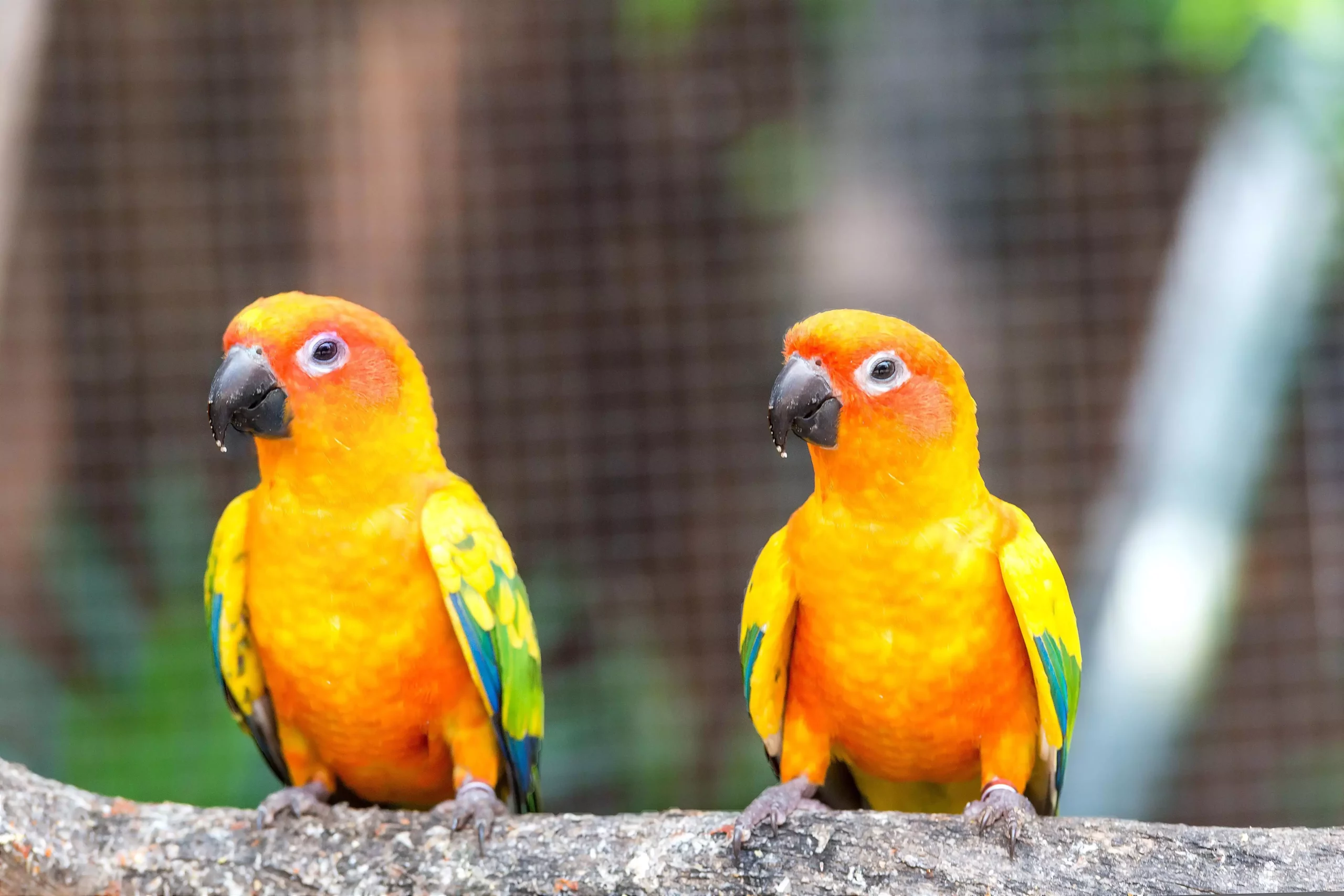Vividly colored and bursting with personality, the sun conure (Aratinga solstitialis) stands out as one of the most beloved companion birds among avian enthusiasts. Their playful demeanor and striking appearance make them a popular choice, especially within family settings. However, potential owners must be aware that these birds are not suited for novice caretakers. Sun conures are highly social creatures that require extensive interaction, consistent training, and engagement to remain friendly and well-adjusted. Their loud vocalizations, while charming to some, can be overwhelming, necessitating careful consideration before bringing one into your home.
Originating from the lush landscapes of northeastern South America—specifically, areas in Venezuela, Brazil, and Guyana—sun conures are typically found in tropical and dry savanna environments. These birds thrive in habitats abundant with fruiting trees and palms, where they can forage for the nutrients essential to their diet. Unfortunately, their populations have been negatively impacted by habitat destruction and the pet trade, contributing to their status as an endangered species. Despite international efforts to curb their capture and trade, including import bans established in the U.S. and European Union, the challenges to their survival remain significant, highlighting the urgent need for strong conservation measures to protect these charismatic birds.
Sun conures are known for their vibrant personalities; they are affectionate, interactive, and full of energy. Their playful antics often entertain their human companions, making them delightful additions to any home. This species thrives on social interaction and can become quite attached to their owners. However, their assertive demeanor can lead to occasional aggression if they feel threatened or provoked. Despite their generally gentle nature, these birds can still engage in nippy behavior, particularly if startled. It’s important for owners to understand that even the most well-adjusted sun conure may bite if they experience fear or stress.
Social creatures by nature, sun conures need companionship—both human and avian. Many owners find that having two sun conures can alleviate feelings of loneliness for the birds while also preventing undesirable behaviors stemming from boredom or lack of stimulation. However, bringing a second bird into the household requires careful consideration of space and resources.
Potential owners should prepare for the significant noise levels associated with sun conures. Their piercing calls can be quite loud and may disturb neighbors, particularly in apartment-style living arrangements. While the vocalizations serve important functions in the wild, such as alerting other birds to danger or attracting mates, this communicative nature can become a challenge in residential areas. While it is possible to train sun conures to curb excessive screeching, it is not feasible to eliminate their vocal tendencies altogether. Consequently, those living in close quarters with others might want to consider a quieter bird species.
Maintaining a healthy diet is crucial for the wellbeing of your sun conure. In their natural habitat, these birds enjoy a diet rich in fruits, seeds, and nuts. In captivity, a balanced diet consisting of high-quality formulated pellets should comprise a significant portion of their intake, supplemented by fresh fruits and vegetables. Options like leafy greens, root vegetables, and occasional treats such as nuts can enhance their diet. However, owners must refrain from feeding them harmful foods like chocolate and caffeine, which can jeopardize their health. Regular check-ups with an avian veterinarian are essential for monitoring their health and preventing common ailments that affect tropical birds.
Sun conures are naturally active creatures that require substantial exercise to thrive. It’s crucial that they have ample time outside their cage to exercise, explore, and socialize. A spacious cage, coupled with play areas and stimulating toys, encourages physical activity and reduces boredom. Interactive toys, climbing structures, and opportunities to foray can help keep a sun conure mentally sharp and physically agile. This level of engagement is paramount to their happiness and can prevent undesirable behaviors such as feather picking due to stress or boredom.
If you are considering adding a sun conure to your family, it is vital to ensure that you acquire your bird from a reputable source. Potential owners should opt for captive-bred birds, with costs often exceeding $800. Whether you decide to adopt from a rescue or purchase from a breeder, assessing the health and behavior of the bird is crucial. A healthy sun conure will appear alert, active, and sociable, with vibrant plumage and clear eyes.
The sun conure offers an enchanting mixture of charm, intelligence, and affection, making them a superb companion bird for dedicated owners. While their needs can be significant, the rewards of establishing a strong bond with such a vivacious and expressive pet are immense. Each interaction can blossom into a joyful moment, enriching the lives of both the bird and its human companions. With informed preparation and a commitment to their care, a sun conure can become a cherished member of the family, filling your home with the sounds of joy and laughter.

